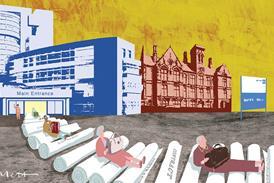One year on: Darzi's long and winding road

Only 12 months into Lord Darzi’s 10-15 year vision, it is no surprise that little real progress has been seen. But the forthcoming public spending squeeze could be a large and unexpected obstacle in the road to improved quality, safety and innovation.
You need to be a subscriber to read more

Subscribe for unlimited access
With a HSJ subscription you’ll unlock:
- All HSJ news by sector, topic & region
- Breaking News announcements
- App for mobile and offline reading
- Comment and Daily Insights newsletters
- Regional roundup newsletters
- Unrestricted access to ‘Ask HSJ’ - AI assistant - AI assistant
- 10 expert briefings every fortnight (Premium only)
Already a subscriber? Sign into your account here




















